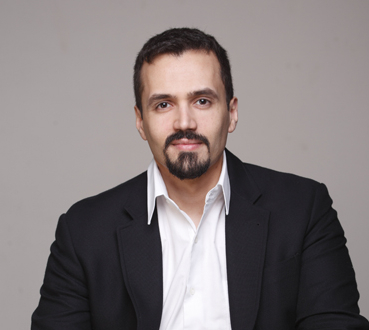By Raphaël Hadas-Lebel
PARIS: A new and important acronym has entered the French political lexicon: QPC, which stands for the rather austere-sounding “Priority preliminary ruling on the question of constitutionality.” Under QPC, which was part of the constitutional reforms that France implemented in July 2008, any citizen involved in legal proceedings can now contest the constitutionality of a legislative provision.
This is a far-reaching innovation. France has long been characterized by Jean-Jacques Rousseau’s philosophy, which placed the law — the expression of the General Will — at the absolute top of the hierarchy of judicial norms. As a result, a veritable allergy to assessing the constitutionality of any law has long held sway.
Not until Charles de Gaulle’s 1958 Constitution was even a limited assessment of a law by the Conseil Constitutionnel (Constitutional Council) allowed, and then only with extensive precautions. Indeed, the Constitutional Council made its assessments a priori, one month after adoption of the law, and only four officials could initiate a review: the president, the prime minister, and the presidents of the National Assembly and the Senate.
This list was broadened in 1974 to include any 60 members of the National Assembly or the Senate, thus allowing the opposition to submit the laws adopted through parliamentary majority to some examination of their constitutionality. But the idea that any citizen could challenge the constitutionality of legislation, as is possible in many European countries and the United States, was inconceivable.
The 2008 constitutional reform finally recognized this possibility. But a double filter of safeguards was established: the jurisdiction before which the matter is brought, and the competent Supreme Court — either the Council of State [Conseil d’État] or the Final Court of Appeal — which has three months to decide whether to refer a case to the Constitutional Council.
One year after its implementation in March 2010, the reform has shown impressive results. Of the 400 cases examined by both Supreme Courts, 120 were referred to the Constitutional Council, which has issued 102 rulings, including 22 striking down the challenged legislation.
The reform has allowed the Constitutional Council to reconsider a whole set of laws that had never before been submitted for constitutional review, mainly because they were drafted prior to 1958. One of the most emblematic decisions concerned the code of criminal procedure, with the Council repealing several articles concerning the legal custody of defendants inside police stations. Other decisions have dealt with taxation, social legislation, or electoral laws.
But nothing has done as much to cement the QPC’s standing as the recent motion submitted by a lawyer in the ongoing criminal proceedings against former President Jacques Chirac, who is charged with having created fictitious jobs at the Paris City Council when he was mayor. The Court’s President complied with the lawyer’s motion to adjourn the proceedings until the Constitutional Council ruled on the constitutionality of the laws under which Chirac is charged. We will find out in the coming weeks whether the Cour de Cassation (Court of Final Appeal) will agree to refer the matter to the Council.
France is thus joining the cohort of countries that, over the past half-century or so, have developed within their legal culture a judicial form of constitutional review of legislation. Indeed, in June 2009, Germany’s Constitutional Court strengthened its political role by demanding that ratification of the European Union’s Lisbon Treaty be accompanied by a law warranting powers of co-decision to the German Parliament. More recently, in October 2009, the United Kingdom, despite having no written constitution, replaced its supreme judicial body, which sat in the House of Lords, with a Supreme Court.
The recent legal revolution in France is no less important, even if it is still in a transitional phase. With the QPC, the entire process of assessing the constitutionality of legislation has gained greater acceptance in French legal practice. It is no longer the privilege of the political class: testing a law for its constitutionality has become a right of all citizens.
At the same time, after one year of implementation, the Constitutional Council has avoided a drift toward a “government of judges,” instead indicating a genuine desire for dialogue with other institutions, notably policymakers.
For example, when answering a request to deal with marriage and the right of homosexual couples regarding adoption, the Council refused to substitute itself for the legislature, which it considered the only competent body to rule on the matter. And when the Constitutional Council does censure a law, it leaves Parliament the time it needs to review the decision and bring the law into compliance with the Constitution.
Thus, an equilibrium of sorts between constitutional review and a concern not to cause excessive legal instability has been found. As the Constitutional Council gets closer to functioning like a Supreme Court, its membership, still heavily influenced by politics, will need to be reassessed. But a huge step has now been taken towards anchoring all laws in the Constitution, which will strengthen the protection of all citizens’ rights.
Raphaël Hadas-Lebel is Honorary Section President at France’s Conseil d’État. This commentary is published by Daily News Egypt in collaboration with Project Syndicate, www.project-syndicate.org.


